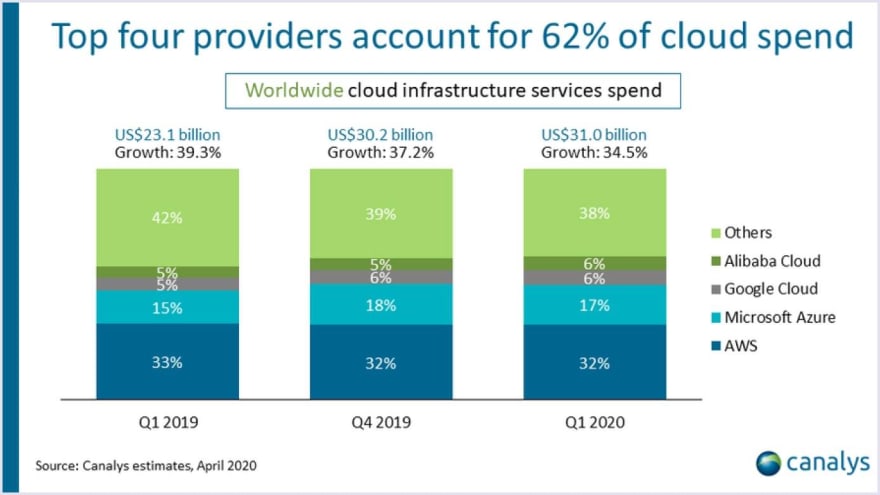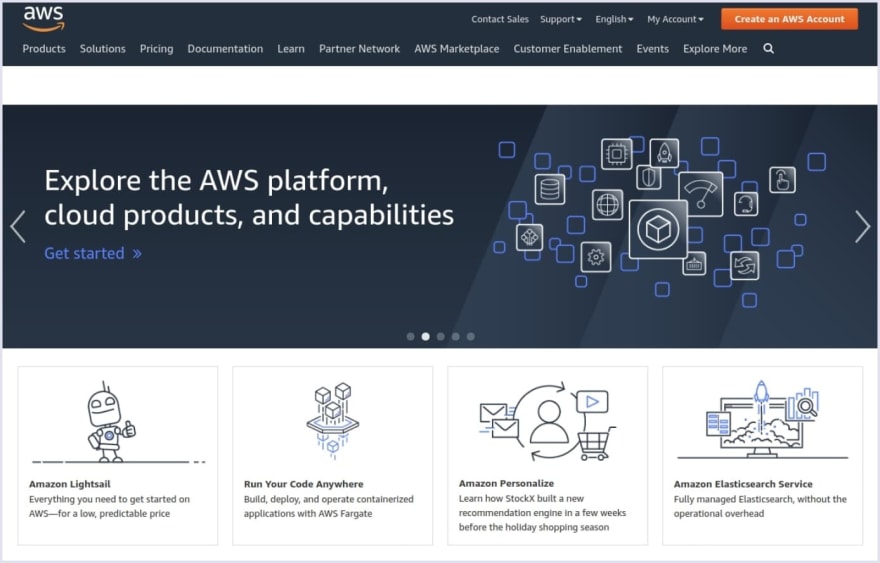The article was originally published on Codica Blog.
What could possibly go wrong if you have an outstanding SaaS application that is ready to capture the market? The answer is simple yet very important – unreliable or low-quality hosting.
Potential customers will show much less interest in the app they cannot access easily and quickly. That is why choosing the right SaaS hosting provider is a crucial step in SaaS development.
In this article, we will discuss different SaaS cloud hosting options and give you some tips on how to get a reliable and cost-effective hosting for your SaaS product.
What SaaS cloud hosting is all about
SaaS stands for software-as-a-service, meaning the software delivery model in which the products are distributed via the Internet. The specific nature of this model makes reliable hosting a necessity for such a business.
Using the services of hosting providers became a common practice in SaaS development because this option enables businesses to save on the hardware maintenance. You delegate the storage of your product and related data to the hosting provider.
The modern market provides three main hosting options:
Shared hosting. You share the server with other anonymous users, and your performance, to a certain extent, depends on them too. It is a cheap but not so secure option.
Dedicated hosting. You are the only user of the server, so you can customize the server environment and enjoy enhanced performance and security. This solution will cost you the most.
Cloud hosting. You use a virtual server that is a part of a physical server. There are different options within cloud hosting, such as public, private, hybrid, and managed. Cloud hosting is a middle ground between functionality and affordability.
Considering that information, let’s get right into the best SaaS cloud hosting options.
Tips on picking the best SaaS hosting provider
Specify your product requirements
Your first goal is to detect the exact needs for your SaaS product. And the variety of services is huge in SaaS hosting, so take your time to explore it. Define the resources that will be needed for your application to run.
Firstly, come up with the expected traffic amount – estimate the storage and bandwidth usage for your SaaS application. Do not forget about this step to get the right capabilities for your needs and not to overpay.
Also, there are many more SaaS hosting characteristics you should pay attention to. The most important of them are:
- Reliability;
- 24/7 availability;
- Scalability;
- Customizability;
- Security;
- Documentation;
- User support;
- Analytics tools.
Depending on your product specification, you might need to use some of the advanced features below:
- Automated backups;
- Adequate storage space;
- VPN;
- Content management;
- Migration;
- Content delivery network (CDN).
Notice technical issues
Next, you need to check the technical compliance. Your target should be a company that provides technologies and tools compatible with your tech stack. Furthermore, you should think about compatibility with the technologies you may use within coming years.
Another hot topic is legacy software that can be a huge problem for businesses. A good option in this case is managed hosting. It will give you the possibility to configure the servers to the needed specification so that your legacy applications will be connected.
Pay attention to security
Security and privacy are considered to be the top priorities for modern businesses. It can be easily proved by the fact that the annual cost of cyber-crime in 2019 has increased by 72% compared to 2014, according to Accenture’s study.
Undoubtedly, your SaaS product needs proper security. To this end, think of universal security measures and project-specific ones. If your application deals with sensitive data, public cloud hosting may not be secure enough. So, you need to consider your industry and the type of information you operate.
To make sure nothing is missing, check out the list of security measures for SaaS hosting below:
- Certifications (like TLS, SSL, HIPAA, and PCI);
- Network monitoring;
- Malware scanning;
- Firewalls;
- DDoS, SQL injection, and phishing prevention;
- Disaster recovery;
- User authorization;
- SFTP;
- Spam filtering.
Consider future growing
When choosing the SaaS hosting provider, not all business owners take into account the scalability of the services and subscription plans.
Do not repeat such a mistake. Be prepared for the fact that when experiencing rapid growth, you need to expand the number of resources you consume. Some hosting providers can boast of offering an extensive utilization of resources at a discounted price.
You can also think of daily or monthly traffic peaks that your SaaS application is experiencing. In that case, you can opt for hybrid cloud hosting. This model implies that the combination of dedicated and shared servers are at your disposal at the same time.
Speaking of the hybrid model, it is a very flexible hosting option that provides customizable pricing plans. Thus, you are free to expand your business and meet customer demands and not to overpay.
Look into Service Level Agreement
Service Level Agreement, or SLA, is a vital part of your communication with the SaaS hosting provider. It formulates your expectations from the provided services and defines the performance metrics and penalties for the disruptions on the side of the provider.
Before sealing the deal with your hosting company, we suggest addressing the essential points below.
Uptime guarantee. Server failure can prove costly since your customers may lose access to your product. To this end, try to look for 99.999% uptime.
Fixed penalties. Make sure to determine compensation for downtime and failures.
Performance reports. Pay attention to the reporting on performance metrics and compare them with the desired efficiency level.
Safe termination. It is crucial to be able to terminate the cooperation without penalties in case of non-compliance with requirements.
AWS as an example of SaaS hosting provider
We have outlined the main points in choosing the best hosting company for exact needs. And now, let’s see an example of great SaaS cloud hosting.
The SaaS hosting market is a crowded one with a huge amount of companies that are hard to enumerate. But in the Q1 2020, the majority of the cloud services are provided by Amazon, Microsoft, Google, and Alibaba, according to the Canalys report. See the figure below.
Let’s take a look at Amazon Web Services (AWS) that is the confident market leader.
Amazon provides IaaS and PaaS services, such as EC2, S3, and RDS. Opting for AWS, you get a fully customizable cloud hosting environment on a metered pay-as-you-go basis.
Subscription can include a single virtual AWS server, a dedicated physical server, or clusters of either. Also, Amazon provides security for subscribers’ systems.
Statista research states that 76% of worldwide organizations rely on AWS to run their apps. At Codica, our tech experts count on AWS too.
Final words
When choosing a SaaS hosting provider, you should pay attention to the speed, performance, security, scalability, and uptime provided. Consider picking the option that will be the most suitable for your needs, and it will bring great results to your SaaS business.
To learn more about how to pick a hosting provider for your business, read our fresh blog article: Choosing the Best SaaS Hosting Provider for Your SaaS App.





Top comments (1)
Some comments may only be visible to logged-in visitors. Sign in to view all comments. Some comments have been hidden by the post's author - find out more